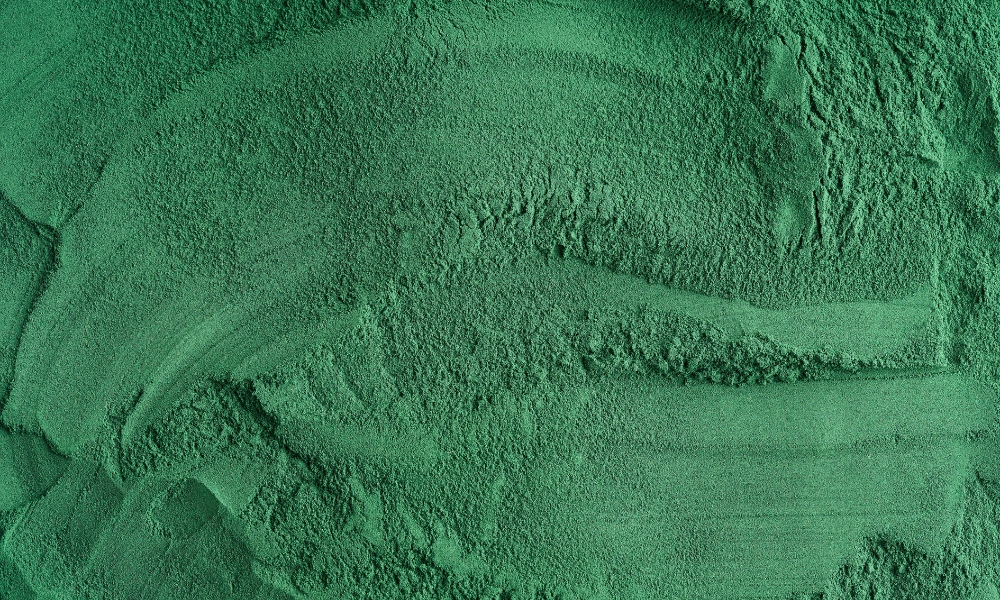Made with under the sun daily.
Made with under the sun daily.
Spirulina is a safe source of protein, nutrients, vitamins and minerals that have been used for centuries. It is a nutritional supplement with proteins of high biological value and with a surprising variety of nutritious elements, vitamins and minerals. As such it provides high-quality protein with all essential amino acids and especially suitable for vegetarians, sportsmen and the elderly.
Spirulina is a cyanobacterium that has a spiral form (hence its name). Its blue-green colour is due to the presence of chlorophyll which gives it the green colour and phycocyanin, a pigment that gives it a bluish colour.
Spirulina is a superfood that offers proteins more digestible than beef and contains a surprising variety of nutrients: vitamins, minerals, essential fatty acids, proteins, nucleic acids (DNA and RNA), chlorophyll, and a wide range of phytochemicals.
Millions of people around the world use spirulina as a dietary supplement. That is in accordance with the recommendations of the United Nations (UN) and the World Health Organization. Through the Intergovernmental Institute for the Use of Spirulina Microalgae against Malnutrition (IIMSAM Humanitarian) the O.N.U. Recommends the use of microalgae such as spirulina against acute malnutrition in situations of humanitarian emergency, chronic malnutrition, and sustainable development.
Olympic athletes have been consuming spirulina to improve their athletic performance. In China’s largest sports training centre coaches have reported that improves recovery and boosts the immune system.
Spirulina has also been chosen by NASA to enrich the diet of astronauts on space missions. It is clear that algae are the food of the future, so you should get to know them more thoroughly.

Founded in Southeast QLD and located on Certified Organic farmland, we are an Australian-made Fresh Spirulina commercial farm. We are subject to the Australia New Zealand Food Standards Code and produce fresh Spirulina using food-grade nutrients only, pay attention to the freshness and health of our spirulina.
You can visit us at our social media pages at facebook.com & instagram.com
Founded in Australia, Southeast QLD, Fresh Spirulina is a local biotech health company conducting research and innovation of micro & macroalgae as plant-based food products.
By appointment only
Monday - Friday: 08:00am - 16:30pm
Saturday - Sunday: Closed
'Let's Encrypt' SSL certificate installed on this website
*Disclaimer: Spirulina is Food, not drugs or medicine. Statements made, or products sold through this website, have not been evaluated by the Therapeutic Goods Administration (TGA) Australia. They are not intended to diagnose, treat, cure or prevent any disease. Read More »
All rights reserve © 2023, Fresh Spirulina Australia


Would you like to be notified when we start?



Thanks! You're on the list.
It's safe to close this popup now.